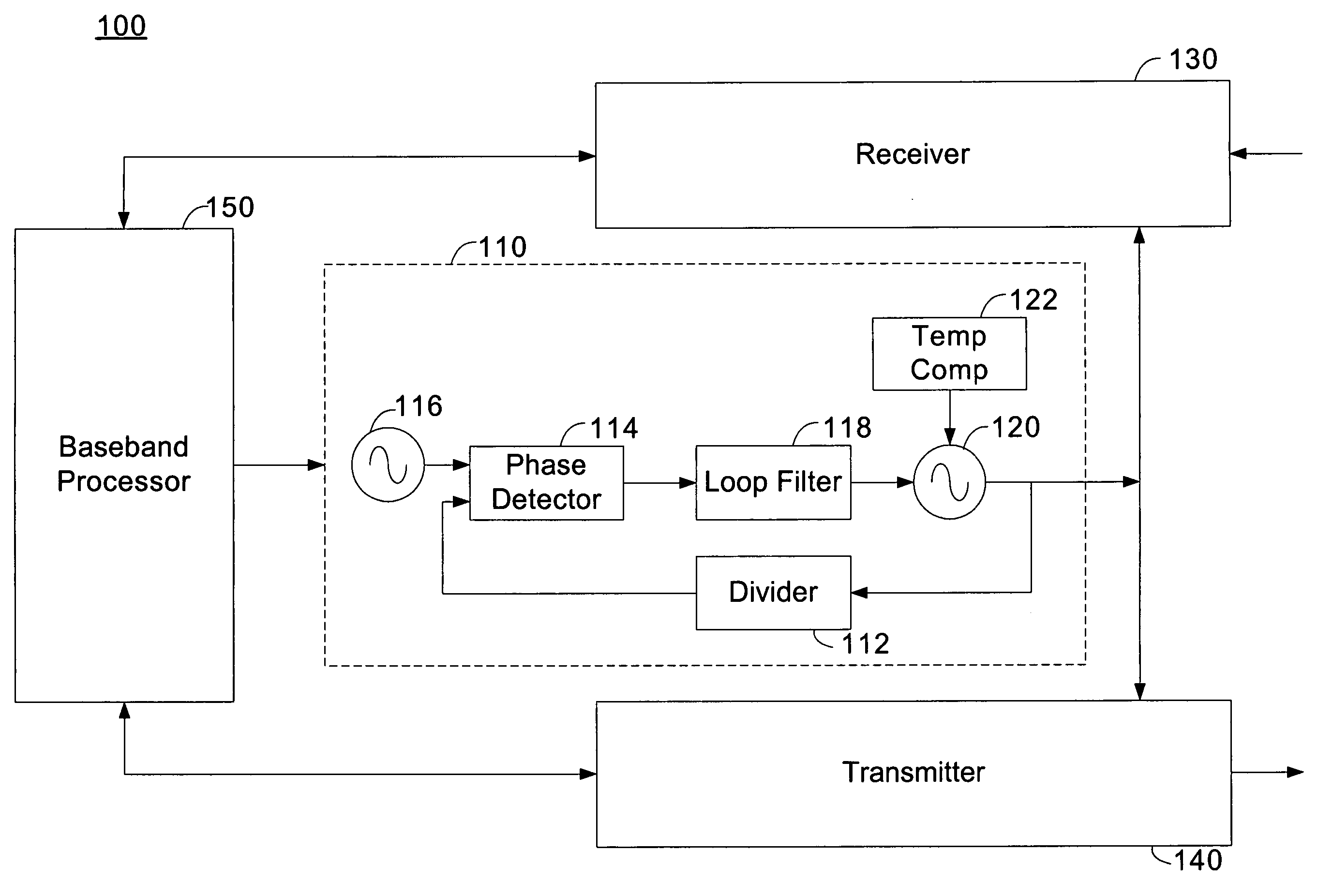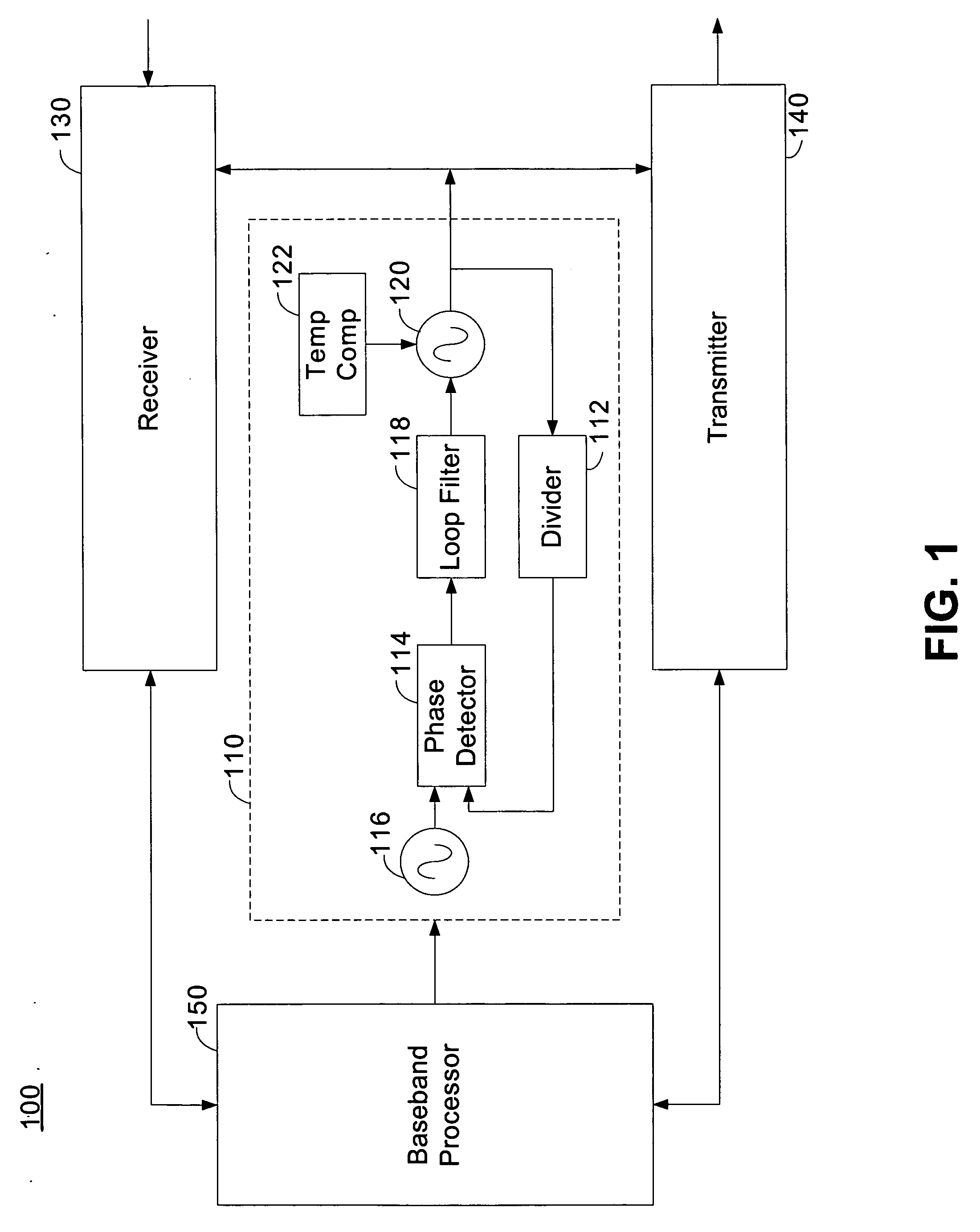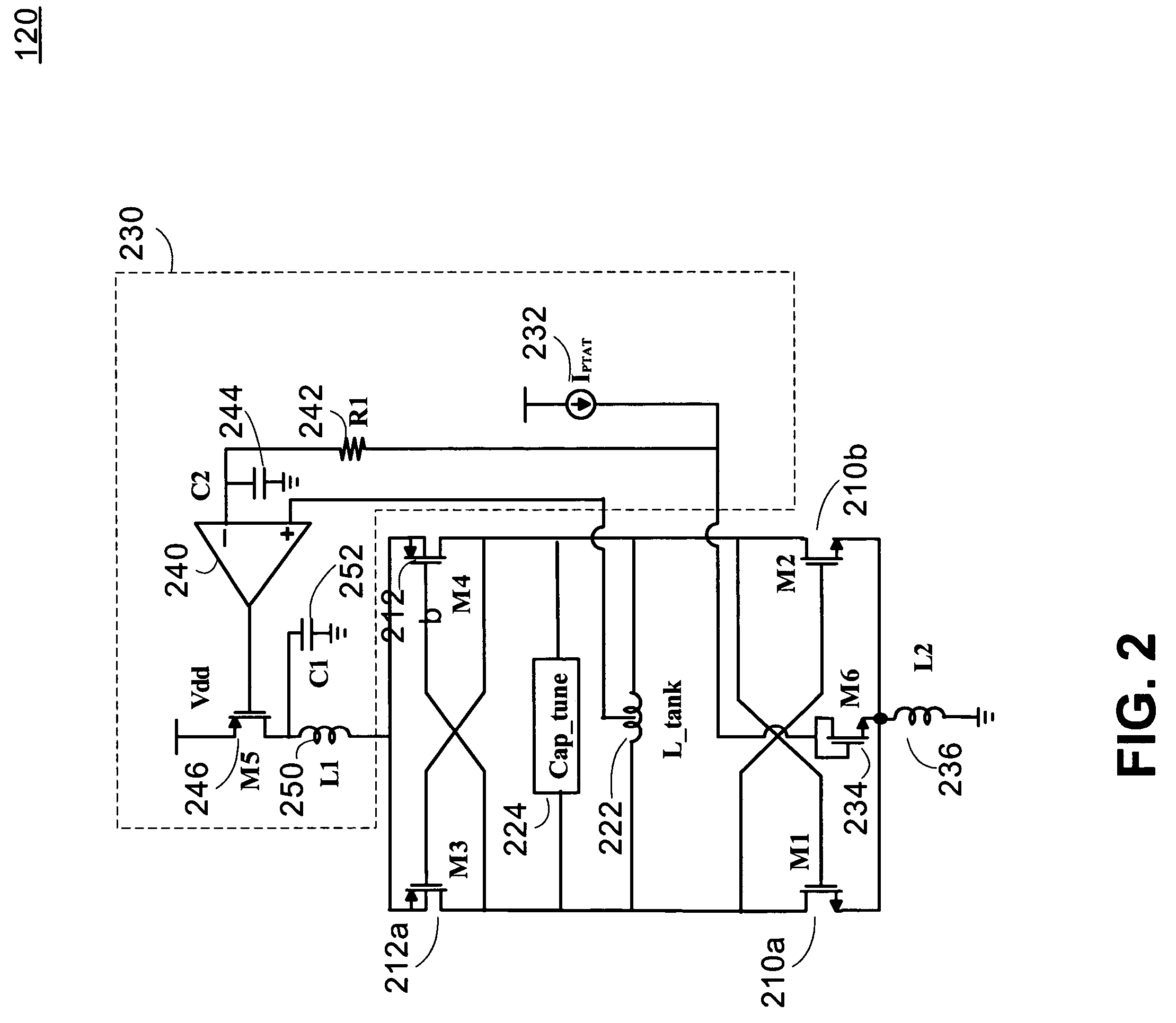Temperature stabilized voltage controlled oscillator
a voltage control and oscillator technology, applied in oscillator generators, pulse automatic control, angle modulation by variable impedence, etc., can solve the problems of reducing the form factor complicated design of wireless communication devices, shrinking the volume available for portable power sources
- Summary
- Abstract
- Description
- Claims
- Application Information
AI Technical Summary
Benefits of technology
Problems solved by technology
Method used
Image
Examples
Embodiment Construction
[0023] Frequency stability is an important issue in VCO design. The VCO frequency stability can be of particular concern for a wireless communication device such as a CDMA receiver, which receives signal continuously and cannot be interrupted to re-calibrate the VCO discrete frequency control. Attempts to decouple the VCO phase noise and tuning range using a plurality of discrete frequency steps would typically not alleviate problems associated with VCO frequency drift because the minimum continuous tuning range is typically determined by the maximum frequency drift of the VCO. Inside a cellular phone, the VCO frequency drift is most likely to be caused by the temperature variations that can be due to a variety of factors, including self heating or environmental temperature change. VCO frequency drift can also be affected by variations in the or battery supply.
[0024] For example, a 1.7GHz CMOS VCO can easily drift more than 15MHz over a temperature range spanning −30° C. to 90° C. ...
PUM
 Login to View More
Login to View More Abstract
Description
Claims
Application Information
 Login to View More
Login to View More - R&D
- Intellectual Property
- Life Sciences
- Materials
- Tech Scout
- Unparalleled Data Quality
- Higher Quality Content
- 60% Fewer Hallucinations
Browse by: Latest US Patents, China's latest patents, Technical Efficacy Thesaurus, Application Domain, Technology Topic, Popular Technical Reports.
© 2025 PatSnap. All rights reserved.Legal|Privacy policy|Modern Slavery Act Transparency Statement|Sitemap|About US| Contact US: help@patsnap.com



